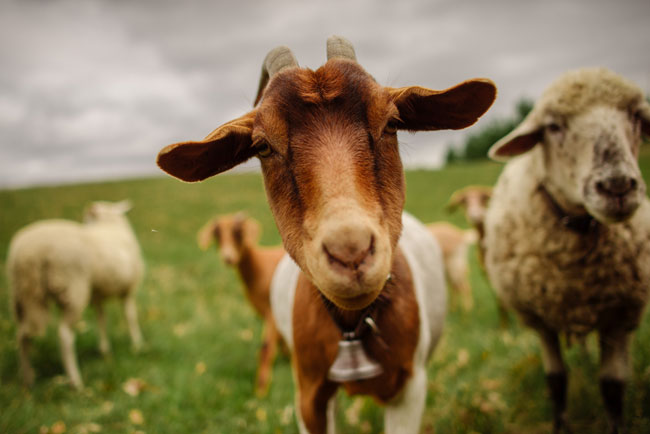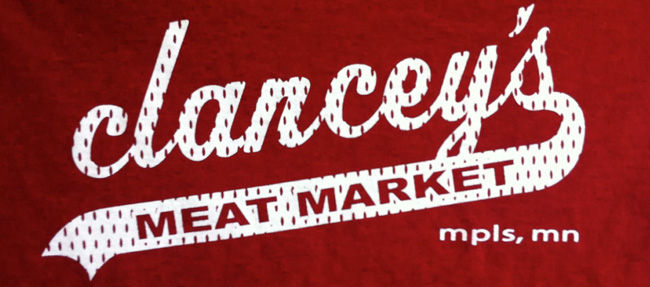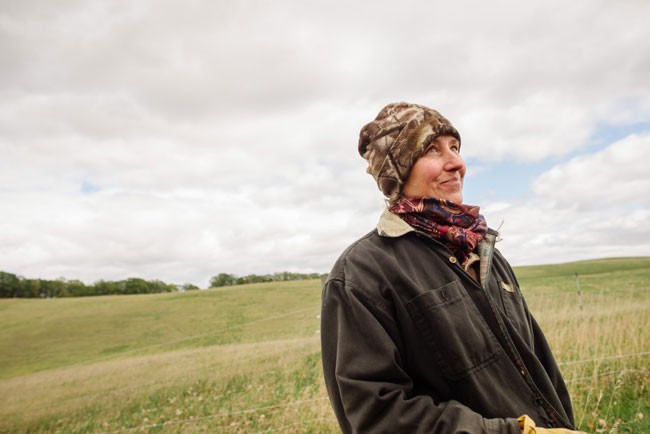
About the Farms in the Lens series: Much of what we write within these pages is focused on the restaurants of Minneapolis and St. Paul. But much of what we eat at those tables comes from farms around the state. With underwriting from Clancey’s Meats and Fish, we’ve set out to document a half dozen of these farms, focusing on the relationship between humans and animals. Check out our complete Farms in the Lens series, including: Wild Acres, Hidden Stream, Shepherd’s Way, Redhead Creamery, Twisted Suri Alpaca Ranch, and Paradox Farm.
Sue Wika (top) and Tom Prieve moved to Paradox Farm in Ashby, Minnesota in 2000. Sue and Tom have made the land into a forage-based permaculture farm and have a year-round goat population.
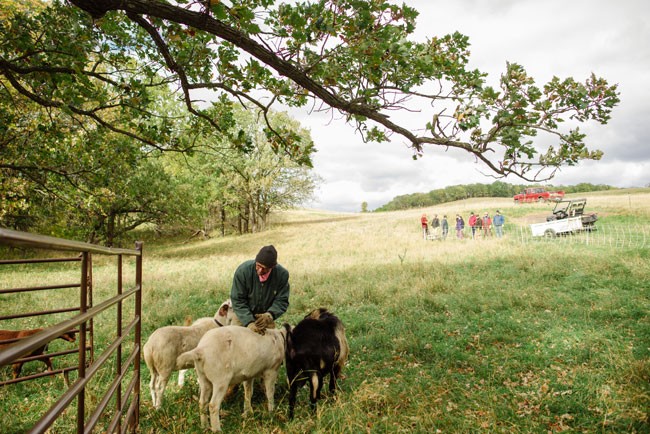
Prieve (pictured above) and Wika are both instructors at Minnesota State Community and Technical College at Fergus Falls as well as owners of the farm. At the time of our visit, they were also hosting a workshop for the Sustainable Farming Association called “ Farm Skills 101,” for beginning farmers.
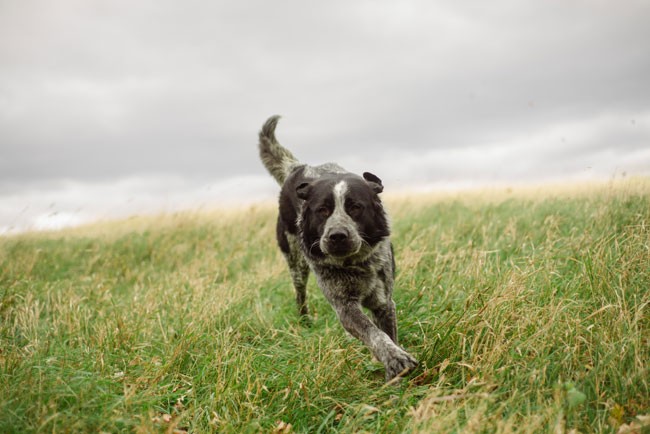
When Wika and Prieve moved to the farm, much of the land was covered in thistles and other problematic plants.
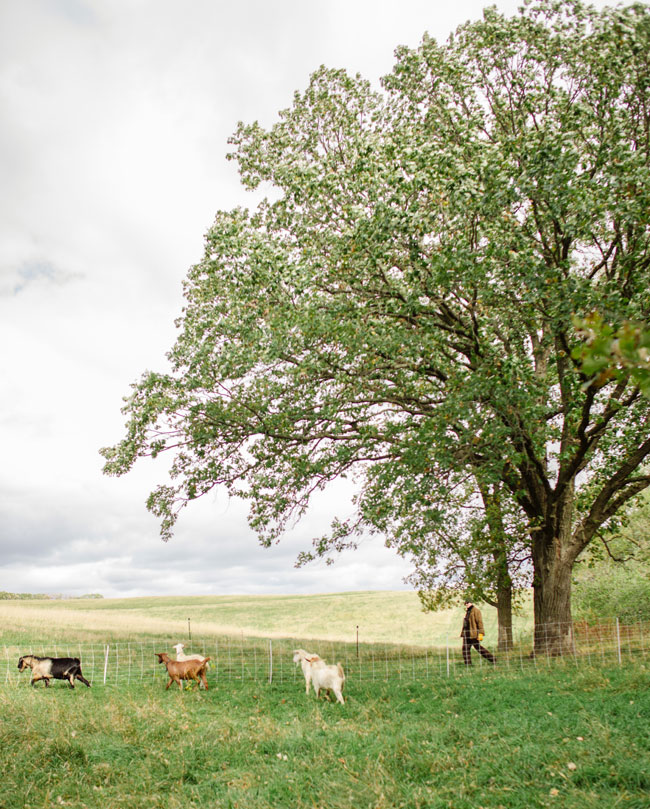
“We want to build soil, and you build soil up,” says Wika. “So what we’re doing with our grazing system is we’re strategically moving animals across the land — we’re looking for as much trample as possible. The animals eat the best part, and then they move on. In the spring they might move twice a day,” she says. But later in the season, “slow growth, slow moves — they might move every two days.”
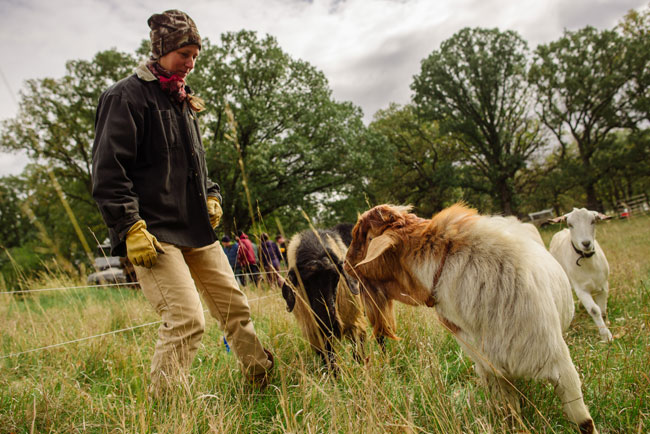
“A lot of people use noxious chemicals to control underbrush, but we’ve got what I call my ‘boy band’. We are strategically moving these goats around the farm’s oak savannah to control the underbrush, and they’re clearing it for us,” says Wika.
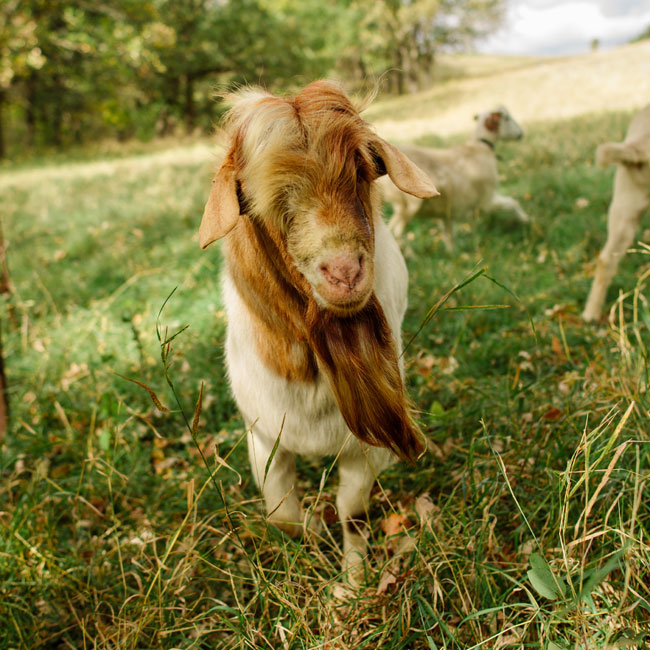
A particularly striking member of the “boy band” of male goats.
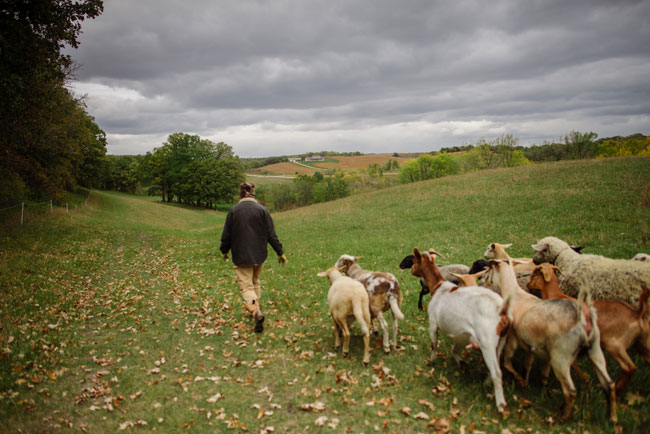
“[Moving the animals] is one of the most joyous parts of being permaculture small-ruminant farmers,” says Wika.
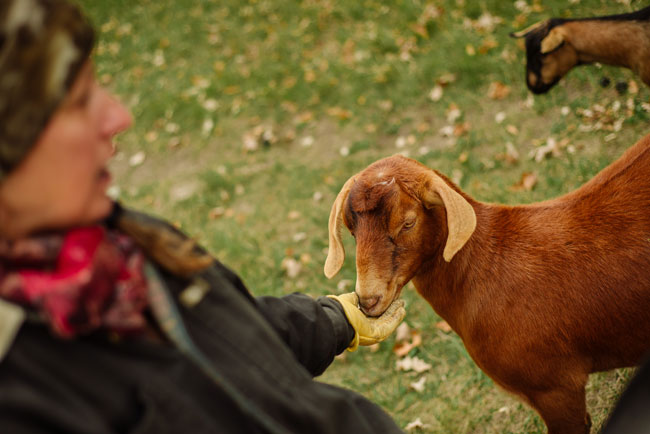
“I don’t feel that different from a potter or a sculptor. Every day you lay your hands on the does, and you feel all the differences,” she says.
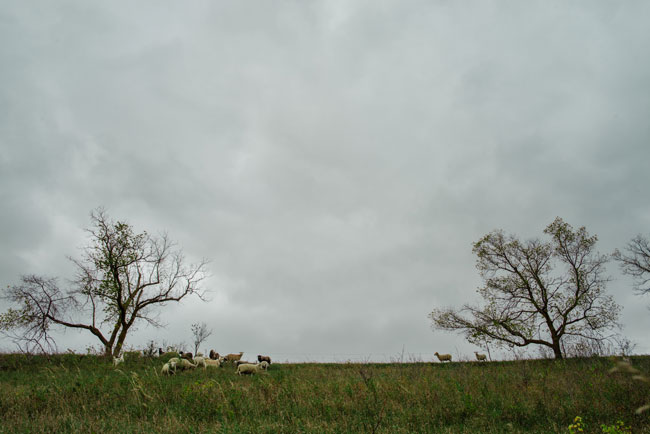
The female goats forage during the day.
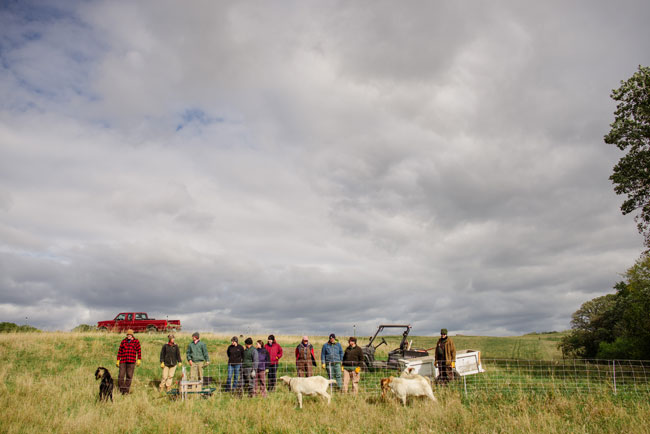
“You can do ecologically sensitive agriculture, but if you don’t have the social component … well, whatever,” Wika says. “My PhD’s in sociology, so in my heart I’m a rural sociologist. We’ll have gatherings here, and we’ll have the most conservative people sitting next to the most socialist … but we can all sit here together because our biggest concern is good food. And that is so fun.”
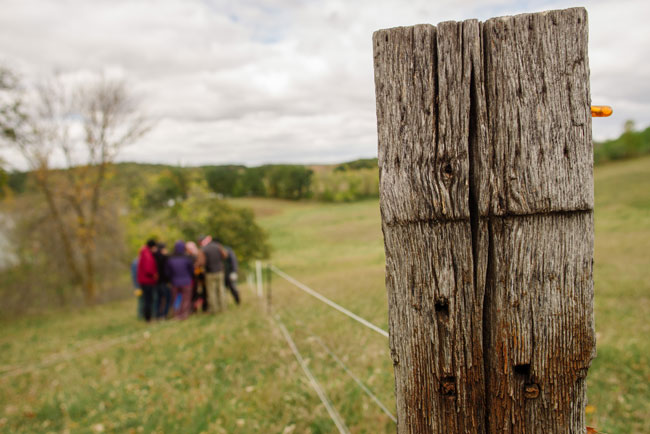
“In the Cities, you can do local food and just hang out with like-minded people,” Wika says. “I think the movement’s a little different out here. It’s a different flavor.”
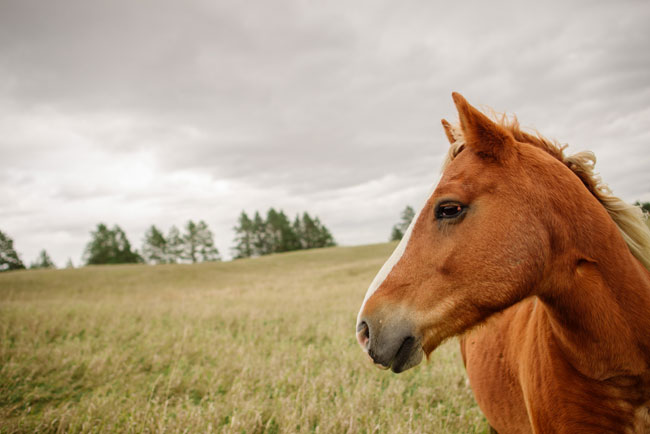
“I’m from South Dakota. Tom and I have always been on the land. He’s a large-animal veterinarian. I got a scholarship to do graduate work in England, and then we did some international work, and then we decided we needed an alternative perspective right here.”
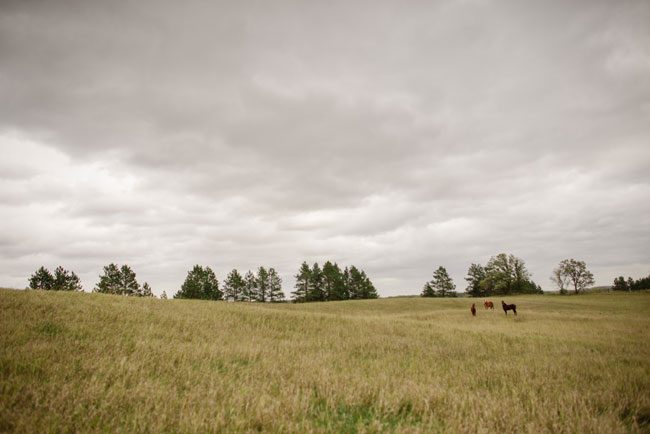
“We’ve got the oak savanna — the best of Minnesota and South Dakota is living right here,” says Wika.
